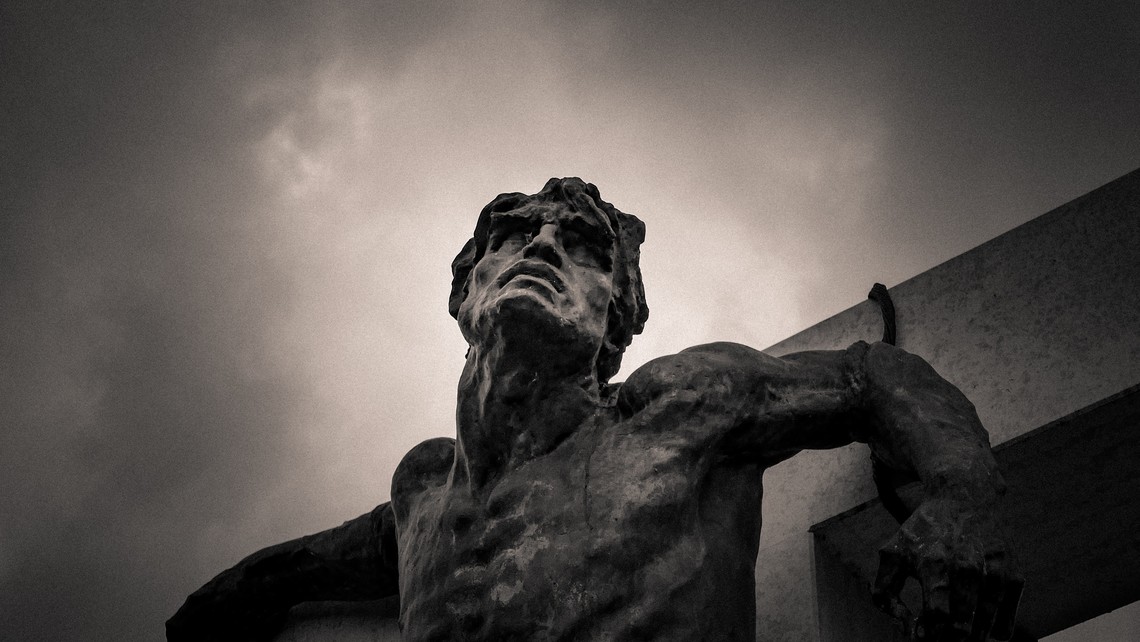
The moment he witnessed the birth of his son, he knew right there and then his life had changed. The journey with his bride that ushered in a new life was an experience that he never would forget. As my friend continued to describe the experience of becoming a father for the first time, all he could think of was the love for his wife and their son. The significance about the birth of his son was that it was based on a visible reality that exhibited, truth, beauty, and goodness. When one is blessed to witness the birth of a new life, there is a beautiful sense of awe and wonder at the reality of this life-giving event. Where before the husband’s sole responsibility is to protect and care for his wife, now he has the added responsibility of caring for his wife as a mother and their newborn child.
It is important to understand the value of experiences and not downplay them as something futile or unimportant. A person’s personal experiences are generally anchored in how they perceive the event and how it applies to them personally. In many respects their personal experiences are developed to define who they are and how they view the world, it becomes their own dogma.
How the person chooses to interpret and apply their experiences in daily living may have lasting consequences either positive or negative. If one were to ask the question: What did Jesus come to do, there would be a myriad of responses based solely on a person’s perception and experience of who Jesus is personally to them from friend, pacifist, brother, Messiah, Savior, Son of God, the word made flesh-Incarnation and so forth.
If a person identifies Jesus Christ as a pacifist based solely on his experiences as advocate for nuclear disarmament, would he be correct? Did God send his only Son to solely advocate for the peace of humanity and halt all forms of war? The answer to this question is no, St. Matthew reminds through the words of Christ; do not think that I have come to bring peace on earth; I have not come to bring peace, but a sword.[1] We encounter in this scenario a misinterpretation of who Jesus Christ is based on one’s own personal experience. The potential result of this mindset is a view of Jesus Christ as simply a fellow advocate instead of the second person of the Trinity who came to suffer and die for the sins of humanity.
Frank Sheed provides us with an answer to the question of what did Jesus come to do by identifying Jesus as Savior. He specifically describes the Angel who speaks to St. Joseph and identifies Jesus as the one who will save His people from their sins.[2] Sheed’s response is important because it identifies two things; man’s identity comes from God, and second, man needs Jesus Christ due to his inability to save himself from sin. There is a distinct difference between one’s experience identifying Jesus as a pacifist versus Jesus as Savior as echoed by Sheed.
The Christian Experience
St. John Paul II in his explanation about the importance of catechesis within the Christian experience reminds us that the experience of Christian living is rooted in the moral life-the life of Christ.
Catechesis is built on a certain number of elements of the Church’s pastoral mission which have a catechetical aspect that prepare for catechesis, or spring from it: The initial proclamation of the Gospel or missionary preaching to arouse the faith, examinations for the reason of belief, experience of Christian living, celebration of the sacraments, integration into the ecclesial community, and apostolic and missionary witness.[3]
The significance of St. John Paul II’s explanation on the Christian experience is that our pastoral mission is to arouse the faith in a loving and prudent way. Our Christian experience if properly ordered toward the Trinity and specifically Jesus Christ will unleash a bevel of graces that will keep those, we encounter focused on inviting Jesus as your personal Lord and Savior into their lives. Jordan Aumann tells us:
If Christian spirituality signifies a participation in the mystery of Christ, our first task is to contemplate that mystery with the help of the New Testament and then to discover how we share it. The mystery of Christ is the mystery of the Incarnation, the Word made flesh and dwelling among us-Jn 1:14 the God made man. The Old Testament had progressively revealed God as Father, as one who approaches man, but his presence was never so intimate as when he sent his only begotten Son into the world that we might live through him- 1 Jn 4:9. The mystery of the Incarnation reveals that God is not only the transcendent and majestic God but he is God “for us” a God of generous love-Eph 2:5.[4]
In the early Church, the Christian life was Christocentric because of the words and deeds of Jesus Christ, which were still fresh in the minds and hearts of the apostles, disciples and all laity.[5] Their experiences resonated with the paschal mystery- the life, death, resurrection, and ascension of Jesus Christ because the received the oral and written experiences of the life of Christ from those who witnessed these events, the Apostles, disciples, and presbyters.
Thus, you had a clear explanation of the life of Christ based on the experiences of those who witnessed the events of Christ unfold. Faith and the practice of the Gospel provide each person with an experience of life “in Christ,” who enlightens him and makes him able to evaluate the divine and human realities according to the Spirit of God.[6] Thus the Holy Spirit can use the humblest to enlighten the learned and those in the highest positions.[7]
The identity of a proper Christian experience
An authentic Christian experience is rooted in the moral law, we are called to exercise our baptismal grace-the love of God received at Baptism through Jesus Christ to know, discern, and understand an authentic Christian experience.
The fidelity of the baptized is a primordial condition for the proclamation of the Gospel and for the Church’s mission in the world. In order that the message of salvation can show the power of its truth and radiance before me, it must be authenticated by the witness of the life of Christians.[8]
The Catechism of the Catholic Church reminds us that the witness of a Christian life and good works done in a supernatural spirit have great power to draw men to the faith and to God.[9] By living with the mind of Christ, Christians hasten the coming of the Reign of God, a kingdom of justice, love, and peace. They do not, for all that, abandon their earthly tasks; faithful to their master, they fulfill them with uprightness, patience, and love.[10] A genuine Christian experience evokes a joyful surrender to the will of God and avoids the notion that one’s personal experience serves as a “the” spiritual barometer apart from Jesus Christ. Any form of experience associated with Jesus Christ must possess a Trinitarian dimension and situate Jesus Christ as the center of all experiential activity.
Do you not know that all of us who have been baptized into Christ Jesus have been baptized into his death? We were buried therefore with him by baptism into death, so that as Christ was raised from the dead by the glory of the Father, we too might walk in newness of life.[11]
[1] Mt 10:34
[2] Sheed, Frank, Theology and Sanity, (San Francisco, Ignatius Press,1993) p. 233-234
[3] Catechesi Trandendae, 18
[4] Aumann, Fr. Jordan, O.P. Christian Spirituality in the Catholic Tradition, (San Francisco, Ignatius, 1985), p. 10-11
[5] Ibid, p. 24
[6] 1 Cor 2:10-15
[7] CCC 2038
[8] CCC 2044
[9] Ibid, 2044
[10] CCC 2046
[11] Romans 6:3-4






